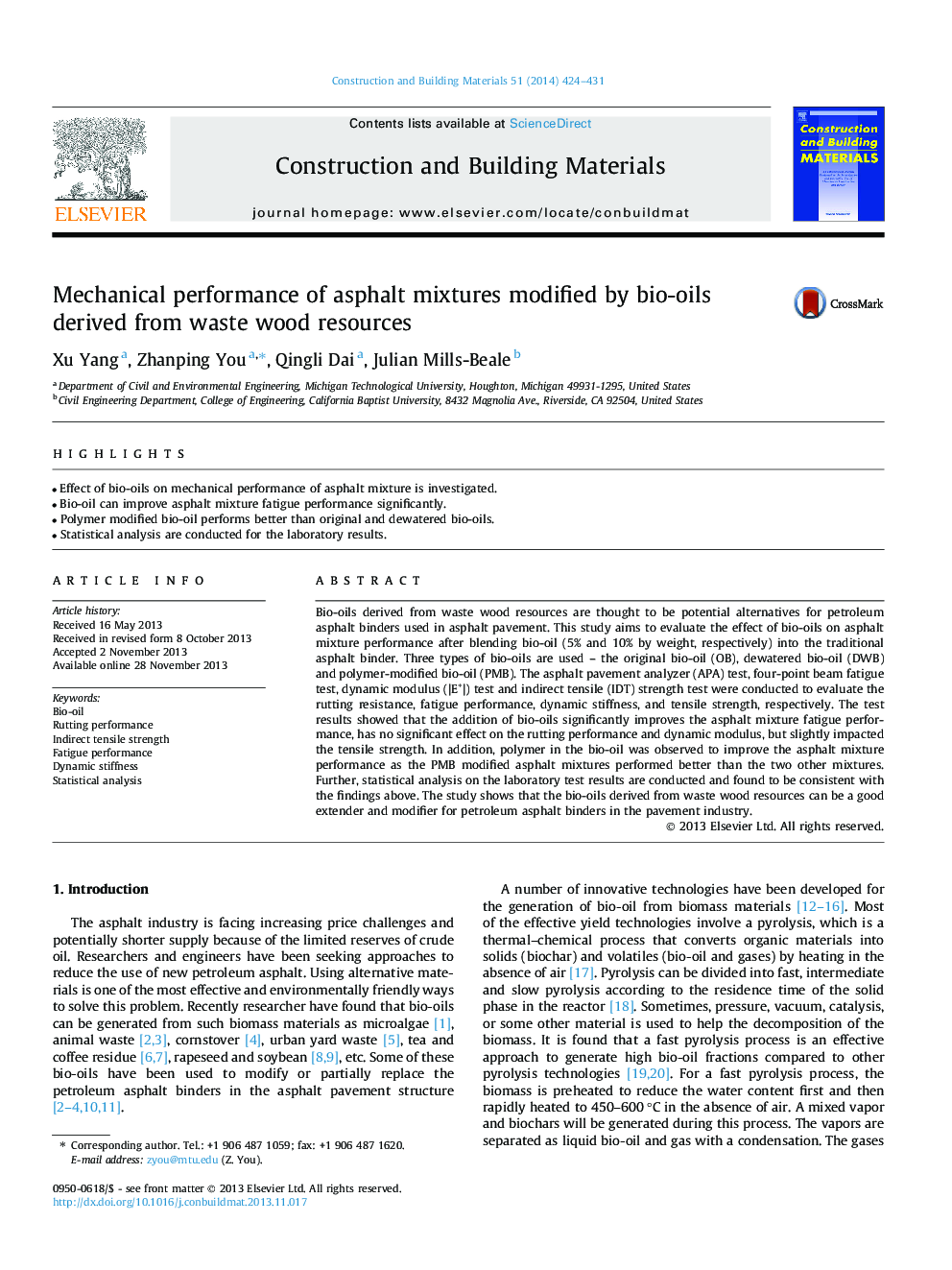| کد مقاله | کد نشریه | سال انتشار | مقاله انگلیسی | نسخه تمام متن |
|---|---|---|---|---|
| 257986 | 503604 | 2014 | 8 صفحه PDF | دانلود رایگان |
• Effect of bio-oils on mechanical performance of asphalt mixture is investigated.
• Bio-oil can improve asphalt mixture fatigue performance significantly.
• Polymer modified bio-oil performs better than original and dewatered bio-oils.
• Statistical analysis are conducted for the laboratory results.
Bio-oils derived from waste wood resources are thought to be potential alternatives for petroleum asphalt binders used in asphalt pavement. This study aims to evaluate the effect of bio-oils on asphalt mixture performance after blending bio-oil (5% and 10% by weight, respectively) into the traditional asphalt binder. Three types of bio-oils are used – the original bio-oil (OB), dewatered bio-oil (DWB) and polymer-modified bio-oil (PMB). The asphalt pavement analyzer (APA) test, four-point beam fatigue test, dynamic modulus (|E*|) test and indirect tensile (IDT) strength test were conducted to evaluate the rutting resistance, fatigue performance, dynamic stiffness, and tensile strength, respectively. The test results showed that the addition of bio-oils significantly improves the asphalt mixture fatigue performance, has no significant effect on the rutting performance and dynamic modulus, but slightly impacted the tensile strength. In addition, polymer in the bio-oil was observed to improve the asphalt mixture performance as the PMB modified asphalt mixtures performed better than the two other mixtures. Further, statistical analysis on the laboratory test results are conducted and found to be consistent with the findings above. The study shows that the bio-oils derived from waste wood resources can be a good extender and modifier for petroleum asphalt binders in the pavement industry.
Journal: Construction and Building Materials - Volume 51, 31 January 2014, Pages 424–431
